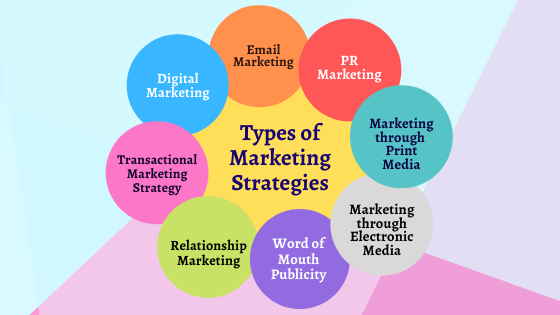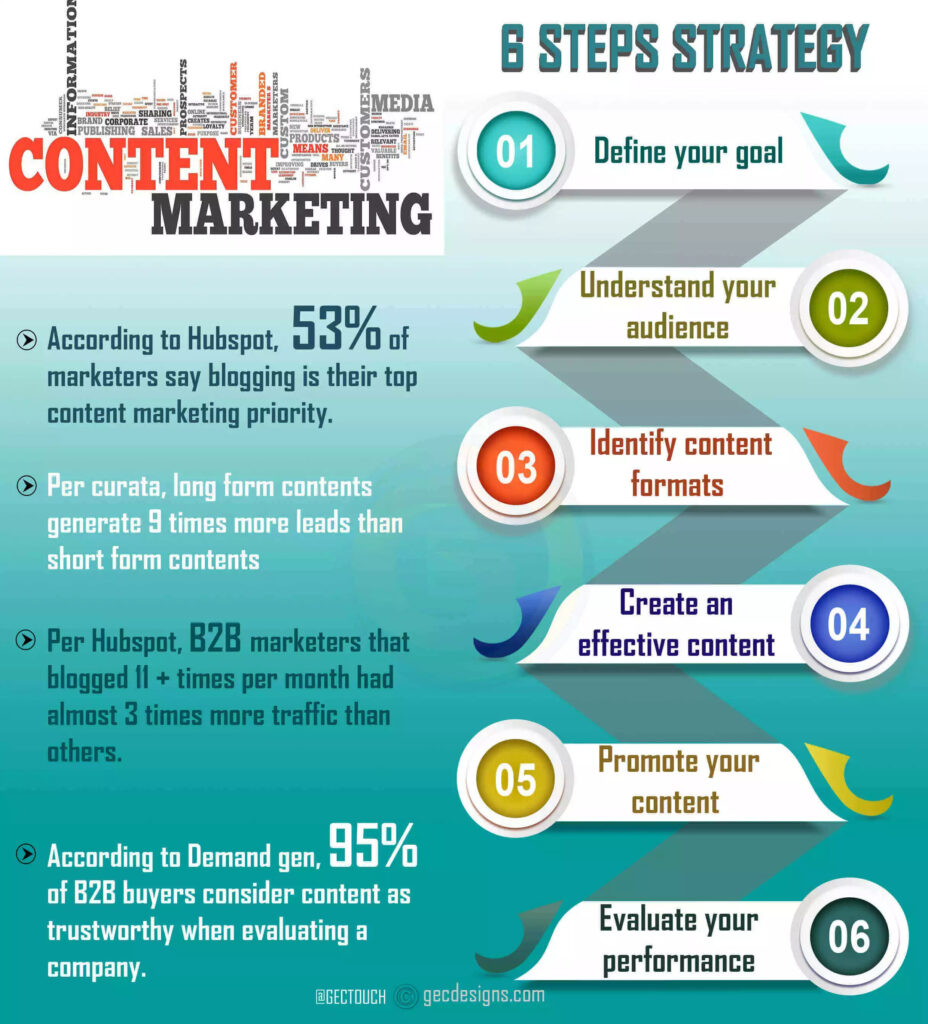Effective Business Marketing Strategies: A Comprehensive Guide
In today’s competitive landscape, effective business marketing strategies are essential for companies seeking to grow their brand, attract new customers, and outperform their competitors. Successful marketing is critical to building relationships and increasing profitability. In this article, we’ll explore a variety of proven marketing strategies that can elevate your business, optimizing for search engines with relevant keywords to help you attract the right audience.

1. Understanding Business Marketing.
Business marketing, often called B2B marketing, involves promoting products or services to other businesses. Unlike B2C marketing, which focuses on individual consumers, business marketing strategies require a distinct approach tailored to target business decision-makers and organizations. If you intend to reach businesses effectively, understanding who your audience is and their unique needs is fundamental for your success.
Key Components of Business Marketing:
- Target Audience: Identify your ideal clients based on industry, size, and relevant factors.
- Value Proposition: Clearly define the unique value your product or service offers.
- Marketing Channels: Choose effective channels to reach your target audience.
- Metrics and Analysis: Set up systems to measure success and adapt strategies accordingly.
2. Content Marketing Strategies.
Content marketing is one of the most effective business marketing strategies available today. It involves creating valuable, relevant content to attract and engage your target audience. Continuous delivery of quality content can establish your brand as a thought leader and build trust with your prospects.

Effective Content Marketing Techniques:
- Blogs and Articles: Publish informative articles that address pain points and provide solutions. Optimize content with keywords such as “business marketing strategies,” “effective marketing techniques,” and “content marketing best practices.”
- E-books and Whitepapers: Create comprehensive guides that offer in-depth insights into specific topics, showcasing your expertise while capturing leads through gated content.
- Webinars and Workshops: Host online events that share valuable information and engage with your audience directly. Promote these events through social media and email marketing.
3. Social Media Marketing
Social media marketing is crucial in today’s digital environment. With billions of users on platforms like Facebook, LinkedIn, Twitter, and Instagram, businesses can connect with their audience, promote their products, and engage potential customers.
Strategies for Effective Social Media Marketing:
- Choose the Right Platforms: Not all social platforms are suitable for every business. LinkedIn serves as a powerful platform for B2B marketing, while Instagram may be more effective for visually-driven brands.
- Create Engaging Content: Use a mix of images, videos, and articles to captivate your audience. Interactive posts, polls, and live streams can boost engagement.
- Utilize Paid Ads: Social media paid advertising can greatly enhance your reach. Use targeted ads that focus on demographics and interests to ensure you attract the right audience.
4. Email Marketing
Email marketing remains one of the most impactful business marketing strategies. This approach allows you to reach out directly to your audience, providing personalized communication, promotions, and valuable content directly to their inboxes.
Best Practices for Email Marketing:
- Build Your List: Focus on growing an email list with potential clientele through lead magnets like free trials, e-books, or newsletters.
- Segment Your Audience: Group your email list based on industry, behavior, or demographics. Tailored messages yield higher engagement rates.
- Craft Compelling Subject Lines: An eye-catching subject line increases the open rate, compelling recipients to engage with your content.
5. Search Engine Optimization (SEO)
SEO is an ongoing process aimed at improving your website’s visibility on search engines like Google. Implementing effective SEO strategies ensures that your business appears at the top of search results, driving organic traffic to your site.
SEO Best Practices:
- Keyword Optimization: Research and incorporate relevant keywords throughout your website, such as “business marketing strategies,” “digital marketing techniques,” and “B2B marketing tips.”
- Quality Backlinks: Build backlinks from reputable websites within your industry to improve your content’s authority and ranking.
- On-Page SEO: Optimize title tags, meta descriptions, headers, and URLs. Make sure your website is mobile-friendly and loads quickly for a better user experience.
6. Pay-Per-Click (PPC) Advertising
PPC advertising is a model where businesses pay for each click on their advertisement, often through platforms like Google Ads or Bing Ads. It is a powerful way to instantaneously increase your visibility and cost-effectively generate leads.
Key Elements of Successful PPC Campaigns:
- Targeted Keywords: Conduct thorough research to select relevant keywords that match user intent. Focus on long-tail keywords like “business marketing strategies for startups” to attract niche audiences.
- Compelling Ad Copy: Write persuasive ads that communicate your value proposition and include a strong call to action (CTA).
- Landing Page Optimization: Ensure that the landing page users are directed to align with the advertisement’s messaging and offer a seamless user experience.
7. Influencer Marketing
Influencer marketing can be an effective strategy to reach a wider audience through trusted voices in your industry. Partnering with influencers allows you to leverage their credibility and reach to promote your products or services.

How to Implement Influencer Marketing:
- Identify Relevant Influencers: Look for influencers who align with your brand values and have a following that resembles your target demographic.
- Build Authentic Relationships: Approach influencers with a genuine interest in collaboration rather than outright promotions. Establish rapport for successful partnerships.
- Track Results: Measure the impact of influencer collaborations by monitoring engagement, reach, and conversion rates.
8. Networking and Relationship Building
Building strong professional relationships is critical for B2B marketing success. Networking provides opportunities to connect with potential clients, partners, and influencers in your industry.
Tips for Effective Networking:
- Attend Industry Events: Participate in conferences, trade shows, and networking events where you can meet potential clients and partners.
- Engage on Professional Platforms: Leverage platforms like LinkedIn to connect with industry professionals, join relevant groups, and participate in discussions.
- Follow-up: Maintain connections by reaching out to new contacts after meetings or events. Share valuable content and continue the conversation.
9. Analyze and Adapt
Analyzing your marketing efforts is indispensable for refining your strategies. Regularly reviewing metrics and key performance indicators (KPIs) helps you gauge which tactics are working and which need adjustment.

Key Metrics to Monitor:
- Website Traffic: Analyze traffic trends using tools like Google Analytics to identify the source and behavior of visitors.
- Conversion Rates: Track the effectiveness of your marketing campaigns by measuring how many leads convert into customers.
- Engagement Metrics: Evaluate social media engagement, click-through rates (CTRs) for email campaigns, and the open rates to assess your content’s relevance.
Conclusion
In a rapidly evolving business environment, developing effective marketing strategies is critical for growth and sustainability. By implementing the methods outlined in this article—from content marketing to SEO and beyond—your business can successfully attract and engage potential clients. Remember, successful marketing is not a one-size-fits-all approach; the key lies in understanding your audience and continuously adapting your strategies based on performance metrics.
By focusing on effective business marketing strategies and optimizing your content with relevant keywords, you’ll not only enhance your online visibility but also drive qualified traffic that can ultimately lead to increased revenue and business success. Start implementing these strategies today and watch your business thrive in a competitive marketplace.
